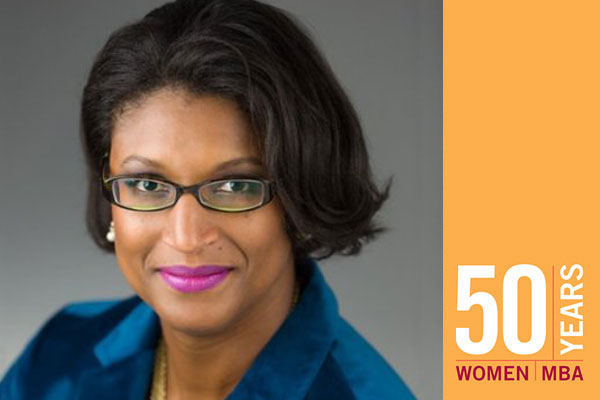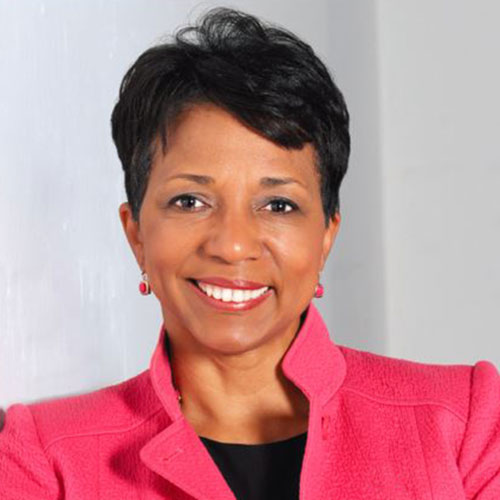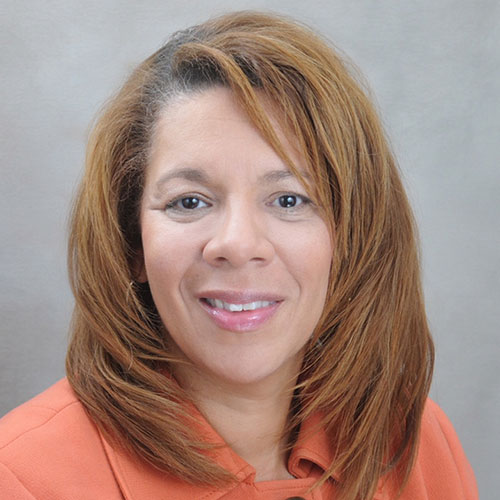
Ivy Jack
Biography
Ivy Jack is head of equity research for NorthStar Asset Management, Inc., a Boston-based wealth management firm that specializes in socially responsible investing. Ivy's primary work involves synthesizing the research process while working with senior management to incorporate NorthStar's strategic vision of socially responsible investing. Prior to joining NorthStar, Ivy worked at TJX Companies, where she supervised a team that evaluated and consolidated the financial results of the company's four divisions in addition to providing guidance to senior management on presenting the company's earnings results to the external investment community.
What impact did HBS have on your life and the life of others?
As a child and a teenager in Baton Rouge, Louisiana, I wasn't aware of the degree to which my gender could be a limitation—in the black community, women wielded a considerable amount of power in making behind-the-scenes financial decisions that determined a family's economic trajectory. I was loved, encouraged, and supported. But as a curious and observant child, I struggled internally when what I saw in the world didn't always support the positive messages I was getting from my family.
I remember sitting in a restaurant, on our way home from visiting relatives in a more rural part of the state. After waiting to be served for nearly an hour, what was happening became clear—and we left. I also remember wondering why, if black people could do anything white people could, only a few black people lived in the nicest neighborhoods and visited the really nice places. And finally, Louisiana imprisons more people per capita than any other state or country in the world. So no matter what was said to me with love, our society demonstrated too much evidence to the contrary.
Years later, I understand that positive representation is key to unleashing the full potential of all people. I'm reminded of the snapshot of the young African American girl looking at Michelle Obama's portrait in the National Portrait Gallery. That photo is emotionally gripping because you can see the seeds being planted in her brain about who she can become.
My own journey, like that of so many others, hasn't been a straight line—but what I've learned along the way has informed what came next with its own brand of logic. At Spelman College I majored in economics and graduated with a scholarship to Princeton's Woodrow Wilson School of Public and International Affairs. I had taken graduate courses there during the summer— I was going to be a foreign service officer. But I was also curious about finance, and interviewed at Morgan Stanley in New York, where I met Carla Harris (MBA 1987). Carla thought I had potential and shepherded me through the process. At Morgan Stanley, I saw how she used her political capital to advocate and provide support for people of color in the firm. Through her actions, I realized that black professionals had to collectively fight for the same opportunities and second chances often afforded to our white male colleagues.
I enjoyed living and working in New York for all the reasons you'd expect—you meet people from every corner of the world, and are exposed to all sorts of music and theater. I also liked the fast-paced, competitive environment on Wall Street, and began to realize that so many of the people I knew and admired had gone to Harvard Business School. I still wanted to pursue a graduate degree, but realized that business school was now more suitable. So I applied, without fully understanding all that HBS had to offer—I just knew that I was going places, and that Harvard could help me get there—wherever "there" was going to be.
HBS provided a network that would become a huge factor in charting my path; and as so many others have said, those connections can be significant for people of color who don't come from upper class communities. Looking back, I know the space I currently occupy has been a direct result of the HBS community, and more specifically the alumni who have helped me develop and hone my technical expertise while providing the emotional support I needed to continue moving forward.
My dual degree at the Kennedy School also exposed me to a course taught by Professor David Gergen that examined the US presidency and the ability of strong leaders to spark change. It's something I continue to think about in my job today, as I spend much of my time analyzing how the CEOs of the public companies we own react to—or lead—societal change.
After HBS I returned to Wall Street, where Patricia Miller Zollar (MBA 1989) helped me find the right opportunity in Lehman's equity research department. At Lehman I learned to perfect my craft by interacting with some of the best and most sophisticated investors. One, Adam Karr (MBA 1997), contacted me the day Lehman collapsed to offer his assistance and remind me to hold my head high. In the wake of the financial crisis, I survived multiple rounds of layoffs and achieved quite a lot professionally—so in many ways, I was successful. But I was also disillusioned.
In 2010, I left Lehman (now Barclays) and went home to Louisiana, where I spent a year caring for my grandmother in the late stages of Alzheimer's while my mother was being treated for cancer. While I can't say for certain that environment was a factor in my mother's case, Baton Rouge is in an area of the state with a high concentration of petrochemical plants called "cancer alley" where incidence of the disease is high and the rights of local citizens too often have been compromised in the pursuit of profit.
While being back in Louisiana was emotionally and financially devastating, it helped me realize that I had to do something more connected with my values. At the same time, I connected with another mentor, Tarrus Richardson (MBA 1996), who warned me that my talents and experiences were unique, and would be underappreciated if I pursued a traditional corporate career path. It took another false start before this advice really sunk in; a natural introvert, I also eventually realized that maintaining an external persona sapped the energy I needed to make a difference in the world. That understanding led to a conversation with Carol Fishman Cohen (MBA 1985) who connected me with Whitney Johnson—and that disruption planted the seeds that led to my current position as head of equity research at NorthStar Asset Management.
At NorthStar, we evaluate public companies, private companies, and other organizations from a broader perspective, going beyond the typical evaluation of a company's fundamentals. We consider it a fiduciary duty to engage with the companies in which we invest to improve the companies' positions and policies on environmental sustainability, human rights, diversity, employee relations, immigration, and LGBT equality. As a result, it's become apparent to me that diverse representation at senior levels of management and throughout an organization—as well as a company's recognition of how its business practices impact marginalized communities—is a leading indicator of future financial performance.
I know from personal experience that representation can be healing, and more effective in creating lasting change; for that reason, I support organizations where the leadership looks like the population it serves and the issues being addressed are tackled holistically. For example, I sit on the board of Brookview House, a facility that provides shelter and support services for homeless women and children who have experienced the trauma of domestic abuse. Brookview allows adolescent boys to remain with their families in its facilities, which is a unique approach that keeps families together and prevents children who are too young to be on their own from falling into the cycle of crime and violence.
When I think of any advice I'd offer to young black women just beginning their careers, I would say: Get in the habit of asking for feedback early and often—and be prepared to hear the worst, because you will. I am someone who is highly focused and intent on the task at hand, which can make me seem unfriendly and distant. Now I take the time to get to know people and help them feel at ease with my work style. I want anyone who works with me to feel comfortable telling me the good, the bad, and the downright ugly—and it is incumbent on me to provide a space for that to happen. So know that feedback, when given appropriately and with the right intention, is an act of love—but even when that is not the case, it is still a gift. Because when we know better, we can do better.

